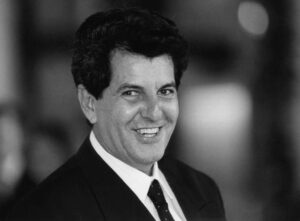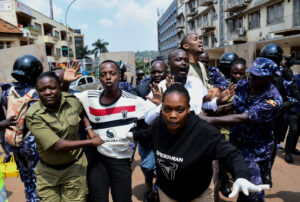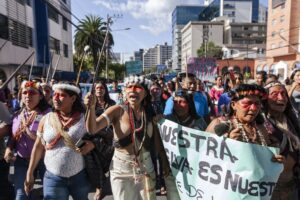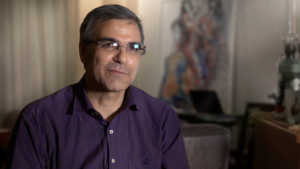Holding Cuban government responsible for murder of human rights defender Payá underscores lack of judicial independence in Cuba
One of Cuba’s most prominent human rights activists, Oswaldo Payá was also one of the country’s most endangered political dissidents and pro-democracy leaders. While fighting for freedom of speech, freedom of assembly, and other human rights—notably through his Varela Project—Payá and his family found themselves under constant threat from the Cuban state. Payá ’s fight eventually cost him his life. In a historic finding, the Inter-American Commission on Human Rights (IACHR) held the Cuban Government was responsible for Payá’s death.
In July 2012, the car Payá and fellow pro-democracy activist Harold Cepero were riding in crashed, killing them both. The Cuban regime maintained that the crash was simply an accident, in which the car lost control and hit a tree. But substantial evidence indicates that another car intentionally drove Payá’s vehicle off the road. Ángel Carromero, the Spanish national who was driving, was drugged and forced to make a false confession while in detention and was ultimately sentenced to a four-year prison term for wrongful death.
The truth of what happened in the crash was obstructed by the Cuban government for years, leaving Payá’s family without a clear path to justice. The family was also denied the right to participate in the legal process, as Cuban criminal law does not allow it.
Why is This a Key Case?
The Commission found “serious and sufficient evidence to conclude that state agents participated” in the murders of the two men. Additionally, the commission noted, Payá and Cepero were subjected to violence, harassment, threats, attempts on their lives, and the car crash that ultimately killed them.
Payá’s case is illustrative of the prosecution of political dissidents and human rights defenders in Cuba. Many such defenders have been driven into exile following threats to themselves and their families and have been accused by the Cuban state of being mercenaries paid by the United States—which Payá proudly never took any funding from, specifically to head off those claims. The case also exposes the lack of independence of the judicial power in the country.
How did RFK Human Rights support the case?
The organization first filed a petition in 2013 with the IACHR on behalf of Payá’s family, claiming the violation by Cuba of Payá and Cepero’s right to life, the lack of effective remedies for the families of the two activists, as well as due process violations against Angel Carromero. A decade later, the Commission called on Cuba to offer reparations for the human rights violations committed against Payá and Cepero, begin a thorough investigation to clarify what happened and punish those responsible.
We know the IACHR’s calls for reparations to the Payá and Cepero families, including fully investigating and holding government actors accountable for their crimes, are largely symbolic. Still, these findings must have consequences for Cuba’s standing as an influencer in key decision-making spaces like the United Nations, especially the Human Rights Council.
By having the U.N. recognize the severity of these IACHR findings with action such as removing Cuba as a member of its Human Rights Council, it demonstrates something important: The international community is listening.
Name of the case (as it appears in the respective legal mechanism)
Oswaldo Payá Sardiñas et al. v. Cuba
Month/Year of filing
April 2013
Legal mechanism in which the case is being litigated
Inter-American Commission on Human Rights
Rights and legal instruments alleged violated (OR found to have been violated)
Articles 1 (right to life, liberty, and personal security), IV (freedom of investigation, opinion, expression, and dissemination), VIII (right to residence and movement), XI (right to the preservation of health and to well-being), XVIII (right to a fair trial), XXV (right of protection from arbitrary arrest), and XXVI (right to due process of law) of the American Declaration of the Rights and Duties of Man
Procedural stage
Merits
Counsel
RFKHR





